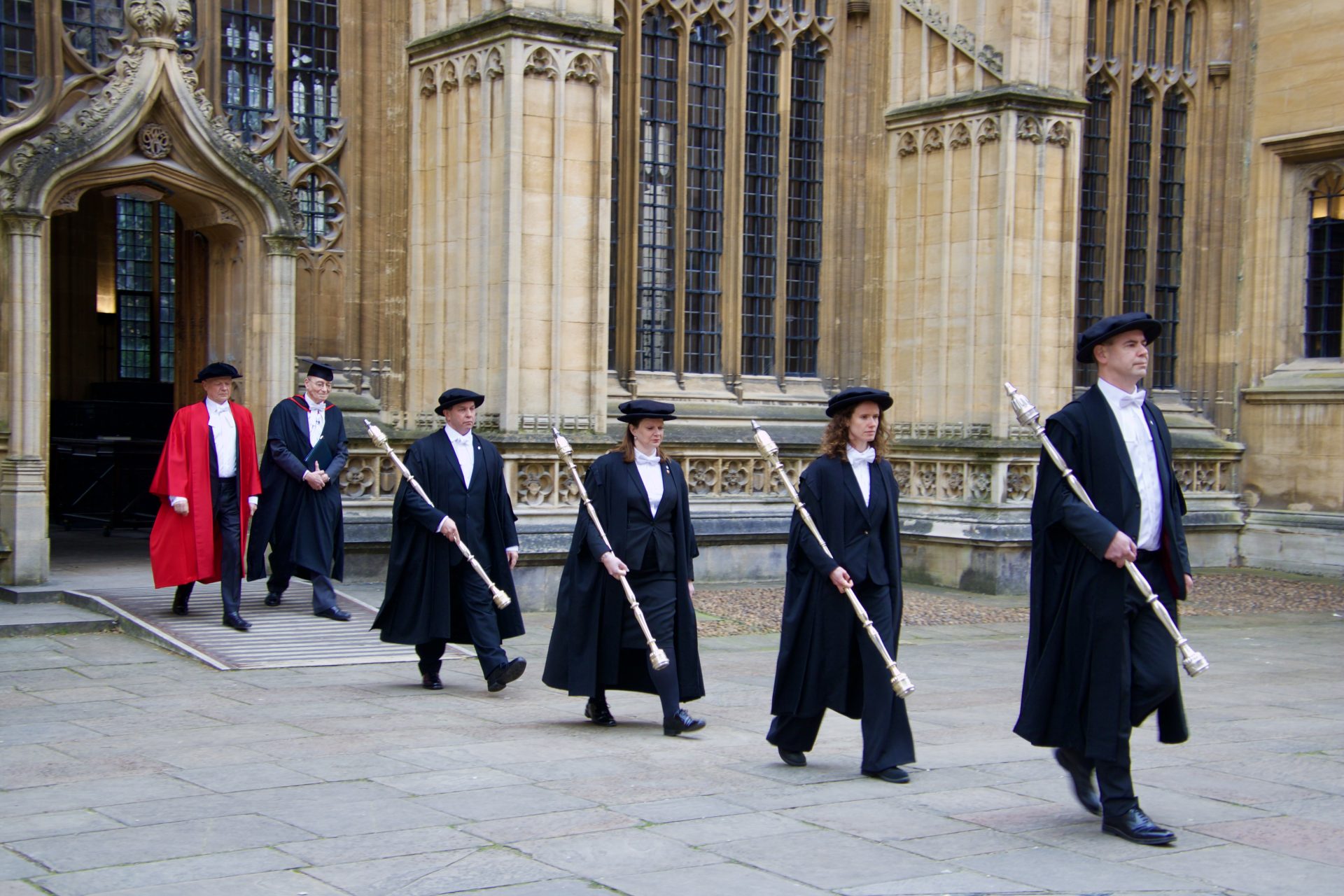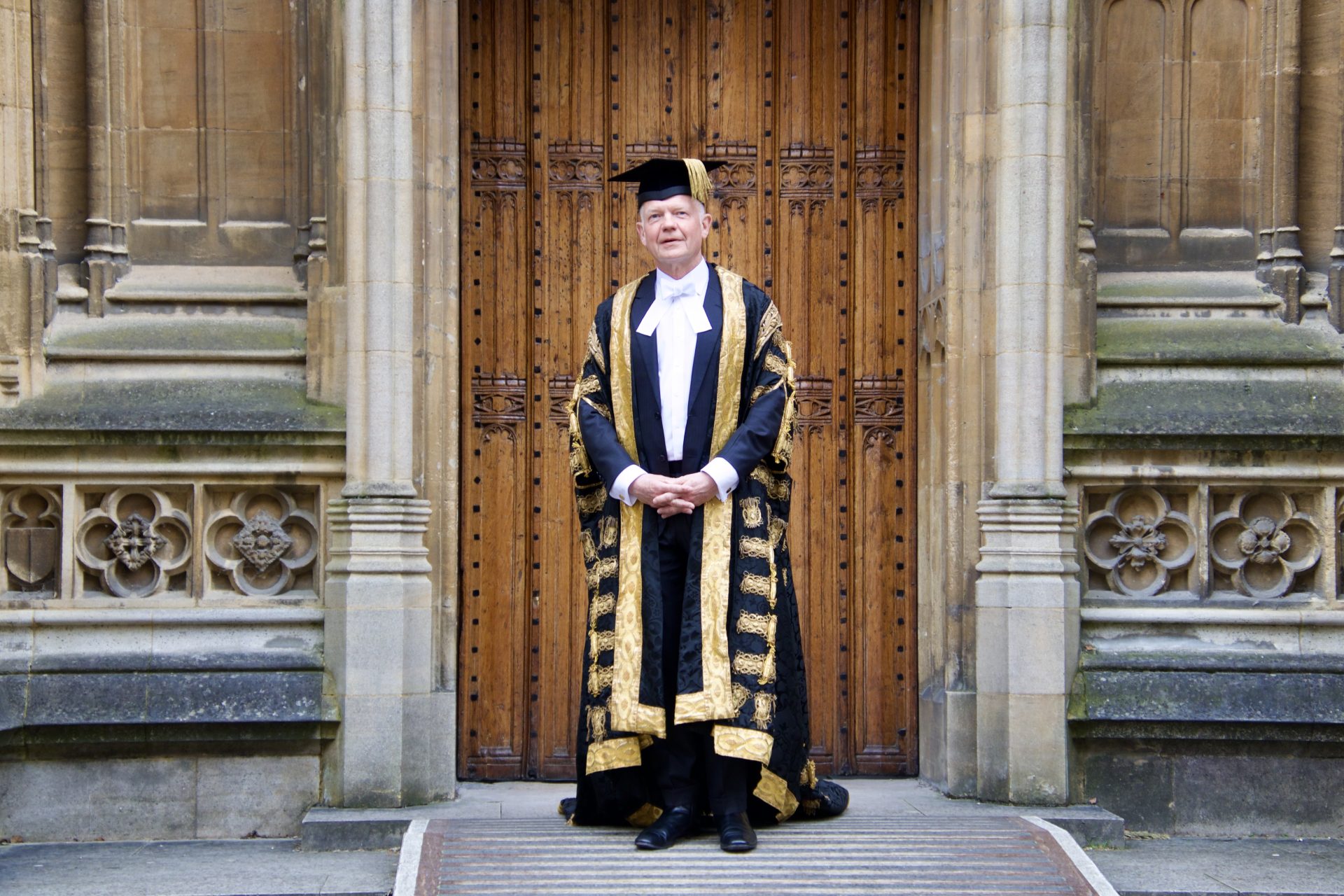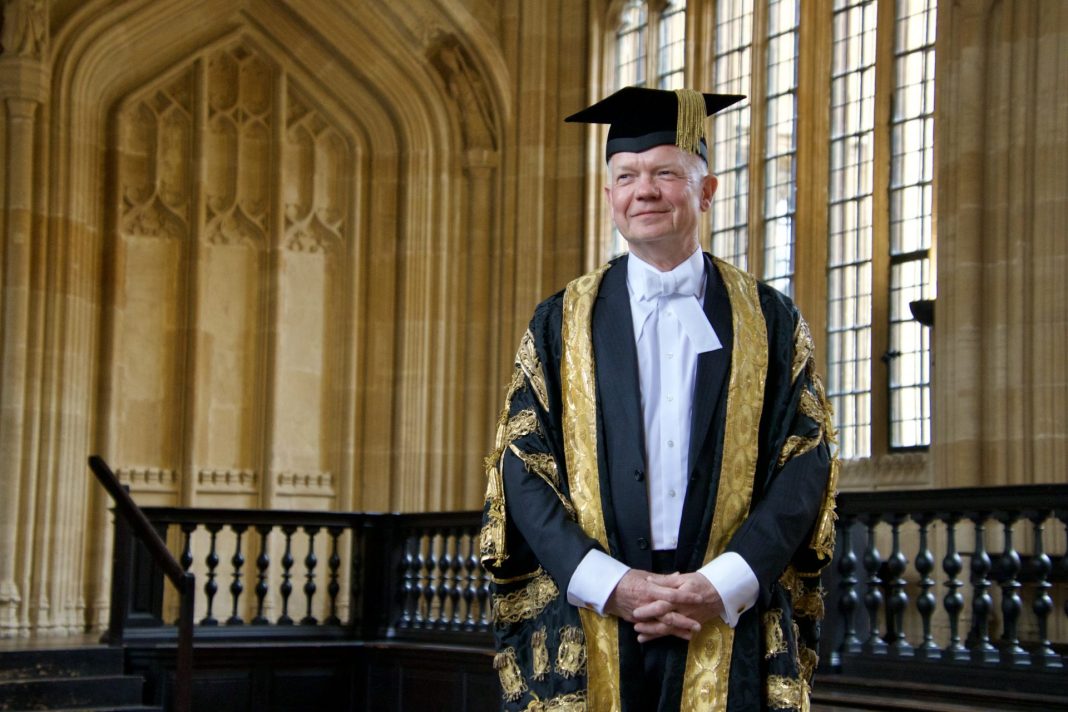The Congregation admitted Lord William Hague as Oxford University’s 160th Chancellor today, in a traditional ceremony held at the Sheldonian Theatre.
Surrounded by a procession of high-ranking University officials including Vice-Chancellor Irene Tracey, Hague walked from the Clarendon Building into the Old Bodleian Quad, through the Divinity School and out toward the Sheldonian.
Attendees first sang the national anthem, and Tracey opened the Convocation for the purpose of admitting the Chancellor.
In a ceremony filled with both grandeur and humour, Hague was handed various objects of importance, including the University’s statutes, keys (which he shook dramatically), and seals, before he finally pledged “do fidem” (I swear) to his oath and donned an ornate gold-embroidered gown. The ceremony was accompanied by trumpet and organ fanfare, as well as songs performed by the choir of Magdalen College, Hague’s alma mater.
Yet Latin and pomp-aside, both the orator and Hague peppered their English speeches with light-hearted quips. The orator questioned Hague on his Latin skills, and poked fun at his attribution of his First in final exams to “last-minute cramming”.
The orator said: “If I may use academic terminology, the great Creator himself took a sabbatical – the first, indeed, after a busy week 1 of his term. (Our cosmologists are still, I think, uncertain about how he spent 0th week.)”

Hague proved his Latin skills by expressing his gratitude in said language, before deciding it was time to “indulge [himself] in the liberty of using the vernacular”. He celebrated the presence of the previous Chancellor, Lord Chris Patten (inaugurated in 2003), noting: “The last chancellor to relinquish the role in their lifetime, the 2nd Duke of Ormonde in 1715, fled the country immediately. I am very pleased that Chris has seen no need to do so.”
He also shared anecdotes of his two other predecessors. Harold Macmillan, at age ninety while Hague was in his twenties, told the young man “don’t do too much, too soon”. Hague had thought the advice useless, until at age 36 he was elected leader of the Conservative Party and realised “how very shrewd that advice had been”. Roy Jenkins, on the other hand, told Hague to ignore publishers’ word limits when writing a book – and so Hague did.
Remarking on the progress Oxford has seen since his matriculation, Hague commended the diversity in gender, ethnicity, and socio-economic background. According to him, as a result, Oxford has seen significant breakthroughs and turned more outward-looking. “We are positively delighted with the idea of a railway to Cambridge. You can’t get more open-minded than that,” Hague said to peels of laughter from the crowd.
At the same time, Oxford is an institution that honours tradition, with a rich history entwined with today’s ceremony. Hague noted that the first document requiring the appointment of a Chancellor is older than Magna Carta. He said: “The reason we speak Latin today even though we all understand English, and hand over keys even though we no longer know which doors they open, along with a magnificent seal even though we could perfectly well send an email, is that we recognise we are the beneficiaries of the labours of centuries, and we are acknowledging that our labours must be equal to passing on to future generations this priceless inheritance”.
Hague identified four areas of what progress means for Oxford. First, it is in the UK’s national interest that Oxford is at the very forefront of scientific and technological breakthroughs. Second, the acceleration of change means an ever-growing need for humanities such as ethics to guide our path.
Third, freedom of speech is of paramount importance: “We cannot prepare for the turbulent decades to come by shielding ourselves from inconvenient arguments, wrapping ourselves in comfort blankets of cancellation, or suppressing minority views because they conflict with the beguiling certainty of a majority. I strongly welcome the decision by ministers to revive most of the provisions of the Higher Education (Freedom of Speech) Act.”
Finally he warned against the “darker side” of the digital age and urged students to “not stare into smartphones”.
Despite the challenges posed in these four areas, Hague said he maintains confidence in the University’s strength due to its pluralistic structure with 43 colleges and halls: “We will make mistakes, but we will never all make the same mistake at the same time”.

The new Chancellor concluded in his address: “I will do well to follow the example of my most recent predecessors in upholding the idea of a great, liberal university built on ancient traditions but at the cutting edge of modernity, opening brilliant minds with the power of debate, inquiry and reason. I will celebrate and articulate your achievements, urge you on when you have doubts and help protect you when your freedoms are under threat. I look forward, more than anything I have ever done, to representing and championing one of the greatest institutions in the world, the University of Oxford.”
After the ceremony, the Chancellor’s procession walked down Parks Road until Keble College, tipping their hats along the way.


